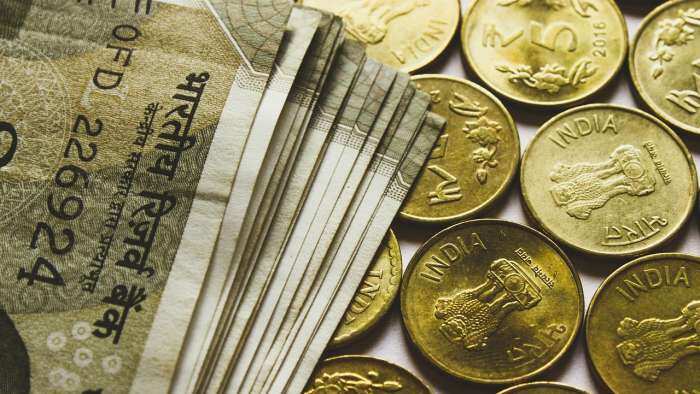Oil prices near 2019 highs after US ends Iran sanction waivers
Oil prices hovered near 2019 peaks in early trading on Tuesday after Washington abruptly moved to end all Iran sanctions waivers by May.

Oil prices hovered near 2019 peaks in early trading on Tuesday after Washington abruptly moved to end all Iran sanctions waivers by May, pressuring importers to stop buying from Tehran. Brent crude futures were at $74.33 per barrel at 0051 GMT, up 0.4 percent from their last close and not far off 2019 highs of $74.52 reached on Monday.
U.S. West Texas Intermediate (WTI) crude futures were at $65.79 per barrel, up 0.4 percent from their previous settlement, and also just a notch below their $65.92 2019 peak from Monday. The United States on Monday demanded that buyers of Iranian oil stop purchases by May 1 or face sanctions, ending six months of waivers which allowed Iran`s eight biggest buyers, most of them in Asia, to continue buying limited volumes.
Before the reimposition of sanctions last year, Iran was the fourth-largest producer among the Organisation of the Petroleum Exporting Countries (OPEC) at almost 3 million barrels per day (bpd), but April exports have shrunk well below 1 million bpd, according to ship tracking and analyst data in Refinitiv.
Watch Zee Business Live here:
Barclay`s bank said in a note following the announcement that the decision took many market participants by surprise and that the move would "lead to a significant tightening of oil markets". The British bank added that Washington`s target to cut Iran oil exports to zero posed a "material upside risk to our current $70 per barrel average price forecast for Brent this year, compared with the year-to-date average of $65 per barrel".
ANZ bank said in a note on Tuesday that "the decision is likely to worsen the ongoing supply woes being felt with Venezuelan sanctions, the OPEC supply cut, and intensifying conflict in Libya". The move to tighten Iran sanctions comes amid other sanctions Washington has placed on Venezuela`s oil exports and also as producer club OPEC has led supply cuts since the start of the year aimed at tightening global oil markets and propping up crude prices.
Watch this Zee Business video here:
Ellen Wald, non-resident senior fellow at the Global Energy Centre of the Atlantic Council, said the United States "seem to expect" Saudi Arabia and the United Arab Emirates to replace the Iranian oil, but she added "that this is not necessarily the way Saudi Arabia sees it". Saudi Arabia is the world`s biggest exporter of crude oil and OPEC`s de-facto leader. The group is set to meet in June to discuss its output policy.
Meanwhile, the Atlantic Council said the U.S. move would hurt Iranian citizens. "We`re going to see their currency collapse more, more unemployment, more inflation," said Barbara Slavin, director for the Future of Iran Initiative at the Atlantic Council, adding that the U.S. sanctions were "not going to bring Iran back to the (nuclear) negotiating table".
Get Latest Business News, Stock Market Updates and Videos; Check your tax outgo through Income Tax Calculator and save money through our Personal Finance coverage. Check Business Breaking News Live on Zee Business Twitter and Facebook. Subscribe on YouTube.
RECOMMENDED STORIES

Power of Compounding: How soon will monthly SIP of Rs 6,000, Rs 8,000, and Rs 10,000 reach Rs 5 crore corpus target?

SBI Guaranteed Return Scheme: Know how much maturity amount you will get on Rs 2 lakh, 2.5 lakh, 3 lakh, 3.5 lakh and Rs 4 lakh investments under Amrit Vrishti FD scheme

SIP+SWP: Rs 10,000 monthly SIP for 20 years, Rs 25 lakh lump sum investment, then Rs 2.15 lakh monthly income for 25 years; see expert calculations

SBI Senior Citizen FD Rate: Here's what State Bank of India giving on 1-year, 3-year, 5-year fixed deposits currently
08:17 AM IST








 Asia market news: Stocks inch higher as China rebounds, dollar firm
Asia market news: Stocks inch higher as China rebounds, dollar firm Major Gulf markets mixed on muted oil prices, regional tensions
Major Gulf markets mixed on muted oil prices, regional tensions Oil prices stabilise as Red Sea transport disruptions ease
Oil prices stabilise as Red Sea transport disruptions ease Oil prices extend gains as Red Sea attacks disrupt supply chains
Oil prices extend gains as Red Sea attacks disrupt supply chains Market soars to new heights as Federal Reserve signals shift: Sensex and Nifty surges amid global economic optimism
Market soars to new heights as Federal Reserve signals shift: Sensex and Nifty surges amid global economic optimism